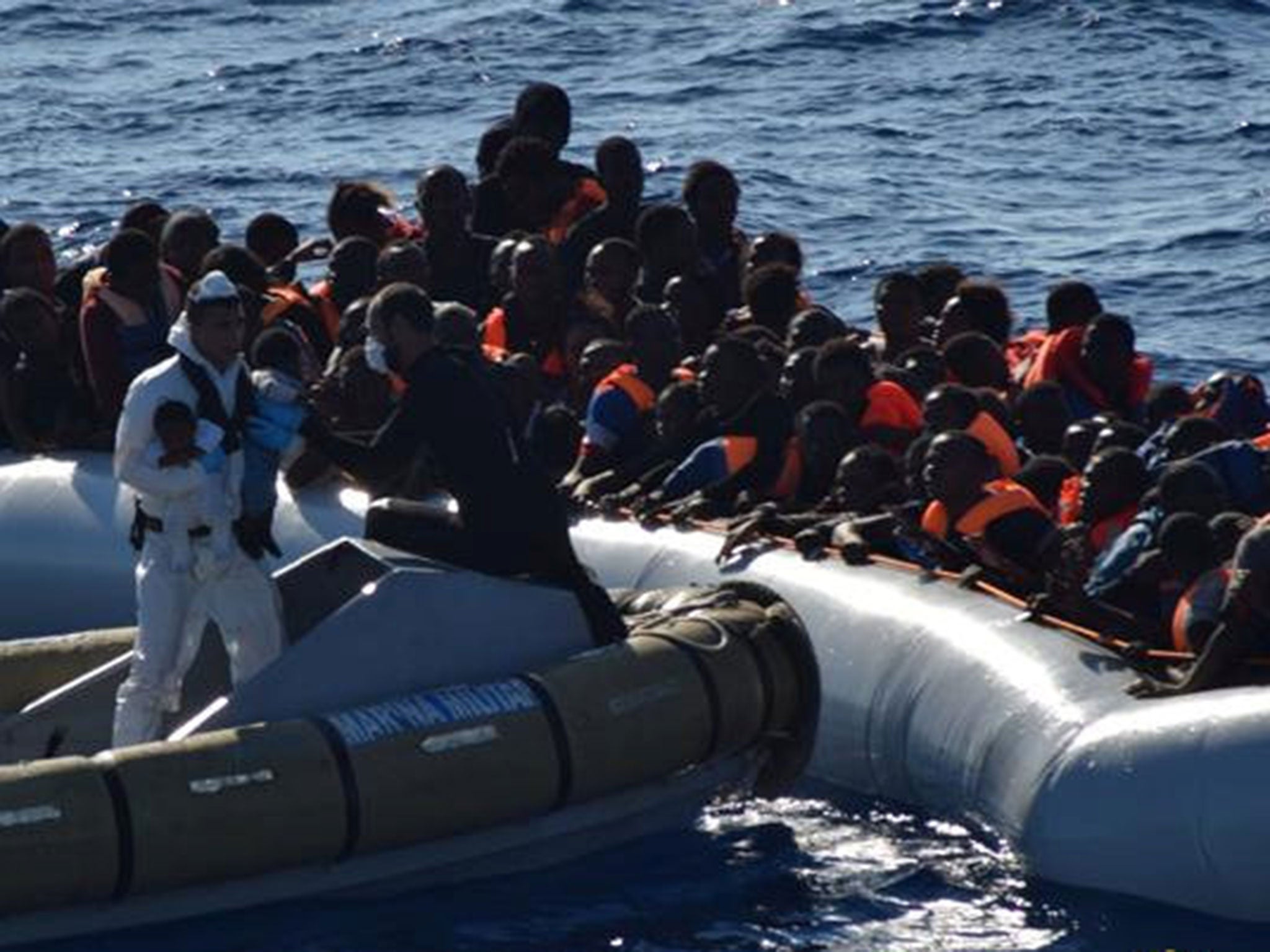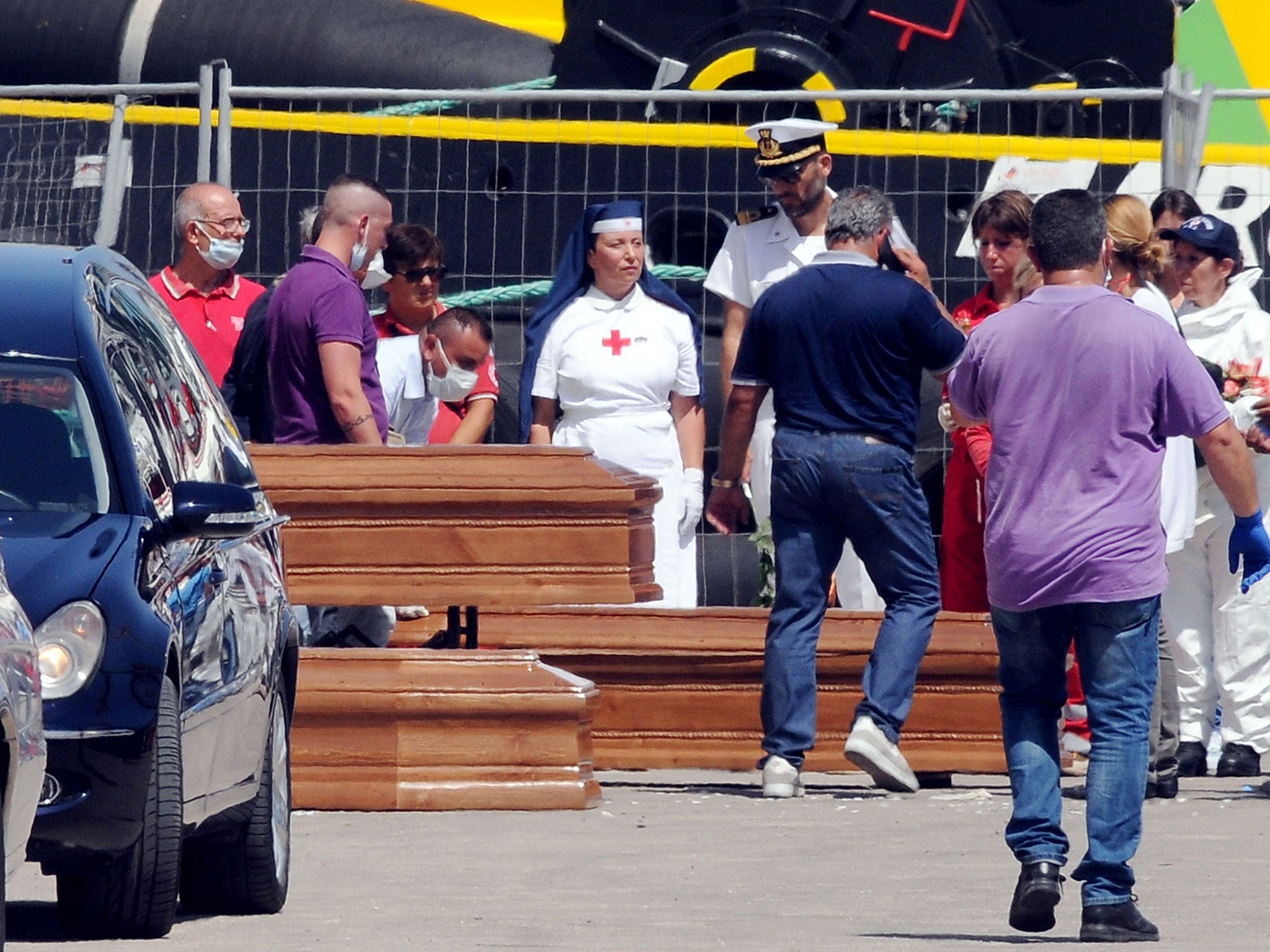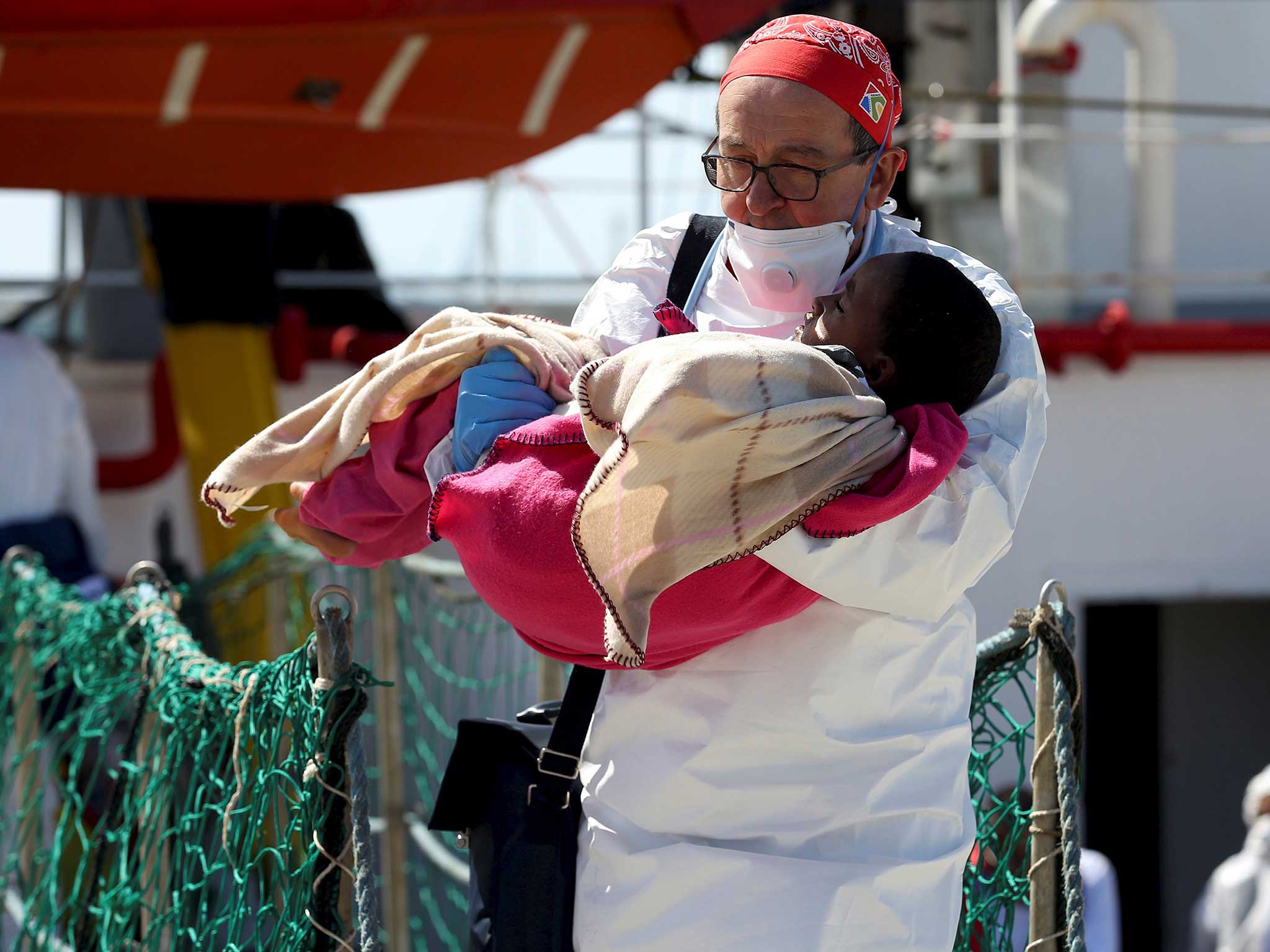Refugee crisis: 2016 on course to be deadliest year on record as thousands of asylum seekers drown in Mediterranean
'We're living in a shameful chapter for European history – we can’t even treat people like humans'

Your support helps us to tell the story
From reproductive rights to climate change to Big Tech, The Independent is on the ground when the story is developing. Whether it's investigating the financials of Elon Musk's pro-Trump PAC or producing our latest documentary, 'The A Word', which shines a light on the American women fighting for reproductive rights, we know how important it is to parse out the facts from the messaging.
At such a critical moment in US history, we need reporters on the ground. Your donation allows us to keep sending journalists to speak to both sides of the story.
The Independent is trusted by Americans across the entire political spectrum. And unlike many other quality news outlets, we choose not to lock Americans out of our reporting and analysis with paywalls. We believe quality journalism should be available to everyone, paid for by those who can afford it.
Your support makes all the difference.More refugees are dying in desperate attempts to reach safety in Europe than ever before as political leaders turn their backs on the continuing crisis.
At least 3,000 migrants have been killed in treacherous journeys across the Mediterranean Sea so far this year, drowning or being suffocated in the bottom of overcrowded smugglers’ boats.
The tragic benchmark was not reached until October 2015, which was the deadliest year on record and made the channel between Libya and Italy the most dangerous crossing in the world.
Rescue workers told The Independent that although fewer asylum seekers have been risking the journey to Greece since the EU-Turkey deal, the situation in the central Mediterranean is getting worse as the number of refugees shows no sign of slowing.
At least 1,500 people were expected to arrive in Sicily alone on Saturday and 1,000 on Sunday, bringing the total to at least 3,000 since Friday.
Dr Erna Rijnierse, a doctor on the MV Aquarius rescue ship run by Doctors Without Borders (MSF) and SOS Méditerranée, said the humanitarian situation was becoming ever more horrific.
In her months treating refugees for injuries sustained from torture, beatings, rape and sexual abuse she has seen several tragedies.
On 20 July she boarded a boat drifting off the coast of Libya to find the bodies of 22 refugees on board, mostly women crammed between the wooden floor and rubber hull.
“I went on board to make sure there was no one we could save and there was a very strong smell of petrol,” Dr Rijnierse told The Independent.
“The boat had cracked and the fuel was mixed in with the water…they died an agonising death – you could see it on their faces.
“Some of them had suffocated, some of them had drowned in 30cm of water. It was something I hope never to see again.”
She and her colleagues photographed the bodies and handed details over to the Italian authorities in the hope they can be identified, while the surviving passengers were taken to safety.
Dr Rijnierse said she believes the situation is worsening in the Mediterranean as smugglers switch from larger wooden fishing vessels to small rubber boats.
“They are meant to carry between 12 and 20 people but each one has more than 100 on board,” she added.
“These boats are just not seaworthy, they are dangerously overcrowded and the people driving them have no idea what they are doing.
“I have a feeling that they pick someone and tell them to drive.”
The rise in deaths so far in 2016 – more than 2,606 of which have been recorded between Libya and Italy – is believed to partly be down to this change of tactics by increasingly ruthless smugglers, who were previously known to sail large boats into international waters before abandoning ship and returning to the Libyan coast.
On the shorter crossing over the Aegean Sea between Turkey and the Greek islands, refugees are normally loaded into dinghies and picked up by patrol boats from the EU’s border agency to be taken to shore.
Since the implementation of the EU-Turkey deal in March, any refugees arriving clandestinely via the route are detained until their asylum applications are accepted, or sent back to Turkey when they fail.
Christine Nikolaidou, from the International Organisation for Migration in Greece, said the threat of imprisonment and deportation was having a dramatic effect.
She told The Independent: “Flows have decreased not just because of the agreement but because of the closure of the borders – refugees and migrants have received the message that the borders are shut.

“Now we have between zero and 100 people arriving in a day – before it was between 1,000 and 10,000.”
Syrians make up almost half of refugees arriving in Greece, followed by Afghans, Iraqis, Pakistanis and Iranians.
But the picture in Italy is markedly different, with most asylum seekers travelling from Nigeria, Eritrea, Gambia, Sudan, Somalia and other African nations.
Many are forced to cross the Sahara with lawless gangs of smugglers, who are known to rape, torture and starve refugees, throwing bodies of those who die off lorries to rot in the desert.
They then board boats from Libya, where the fragile government is struggling to stop warring factions battling for control after years of chaos following the country’s civil war, and prevent the spread of Isis.
Valentina Bollenback, from Save the Children, said the number of unaccompanied children travelling on the dangerous route had doubled in the past year.
She said teenagers are especially vulnerable to exploitation and abuse, and described meeting a girl on Thursday who had been raped in Libya and was pregnant with her rapist's child.
“The situation isn’t getting any better, it’s probably worse, and the reception centres are completely full,” she added. “They go through hell and they’re not even safe when they get here.”
More than 10,500 unaccompanied children reached Italy by sea from January to June this year, including young women being forced into prostitution and hard labour as payment for their “debt” incurred in crossing the Mediterranean.

Many refugees pay hundreds or even thousands of dollars for the crossings – often more than the cost of plane tickets they are unable to buy because they cannot obtain a visa to migrate legally.
Dr Rijnierse said that as well as taking asylum seekers’ life savings, smugglers often take all their belongings, leaving them without food and water on sea crossings that could take days.
“Last year people managed to take some food or their phone or extra clothing,” she said.
“So far this year we have only rescued one person who still had a bag – they are having their personal belongings stripped from them and being left with nothing.”
Like many aid workers, the Dutch doctor is frustrated at the continued refusal of EU states to provide safe and legal routes for refugees.
“I think as long as people drowning in the Mediterannean then enough isn’t being done,” Dr Rijnierse said.
“Everyone has an opinion on how to keep these people out of Europe but no one has an opinion on where they are coming from or why they are running away.
“These people have good reasons for coming, they are risking their lives.”
Kim Clausen, the field coordinator on MSF's Bourbon Argos search and rescue boat, shares her anger.
“It seems like a lot of people in the EU think everyone coming over is a terrorist and that we should leave them to die,” he told The Independent.
“I think we are living in a really shameful chapter for European history – we can’t even treat people like human beings.
“I wish I could take every one of these politicians out on a trip to see these people and hear their stories about how they have been raped and tortured and kept as slaves, and how they are fleeing everything around them.
“Building walls so you don’t see the suffering doesn’t mean it isn’t happening.”
The Office for the UN High Commissioner for Human Rights warned on Friday that physical and legal barriers to migration were “no match” for human trafficking
Maria Grazia Giammarinaro said criminalising refugees made people fleeing conflict, persecution and extreme poverty easy prey.
“Some countries have adopted restrictive approaches, which exacerbated vulnerabilities of migrants, refugees and asylum seekers to human trafficking,” she added.
“It is time to take action, and put in place policies based on shared responsibilities, aimed at ensuring survival, relocation and social inclusion of people fleeing conflict, and preventing trafficking and exploitation in the context of mixed migration flows of people.”
The British Government has repeatedly defended its record on the refugee crisis, despite warnings from the Home Office Select Committee that it will struggle to fulfil its pledge to resettle 20,000 Syrians.
It is supporting the Europe-wide Operation Sofia mission and is training Libyan coastguards and naval personnel in an attempt to stem the number of boats being launched from the country’s shores.
David Cameron also repeatedly championed the strategy of using billions of pounds of funding for humanitarian aid aimed at keeping Syrian refugees in the region and dissuading them from travelling to Europe.
“Operation Sophia has saved more than 13,700 lives,” a spokesperson for the Foreign Office said.
“We are committed to maximising Sophia’s impact by seizing and destroying the traffickers’ boats and identifying smugglers for arrest."
Join our commenting forum
Join thought-provoking conversations, follow other Independent readers and see their replies
Comments